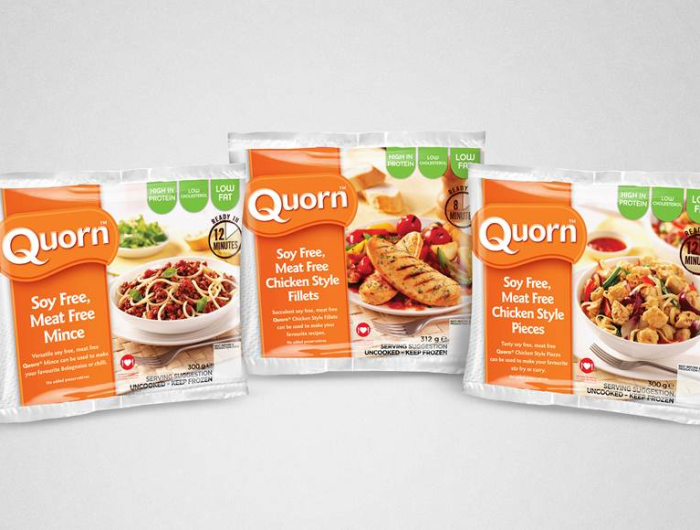Victims urge "Whole Foods" supermarkets not to sell Quorn

Fake meat made from fungus causes vomiting, diarrhea, & worse, according to CSPI
Eleven people who became ill after eating Quorn have urged the giant natural-foods chain Whole Foods not to carry—or to at least post warning signs about—the controversial fungus-based meat substitute. In a letter to Whole Foods president John Mackey, the victims expressed dismay that the chain continued to sell the product even after the Center for Science in the Public Interest (CSPI) informed the chain about the adverse reactions Quorn causes.
“After eating the product one or several times, we learned the hard way that it contains a powerful allergen,” the letter states.
In August 2002, CSPI urged the Food and Drug Administration (FDA) to order Quorn off the market after CSPI began receiving reports of adverse reactions to the ingredient via a web site, www.QuornComplaints.com. Since then, more than 100 American and 500 British victims of Quorn poisoning have filed reports with CSPI.
Research in several medical journals has shown Quorn to be a powerful allergen, and even an early double-blind clinical study conducted by its manufacturer proved that some people who ate Quorn suffered nausea, vomiting, or diarrhea. Despite that and despite CSPI’s complaints, the FDA has continued to allow its sale, and grocery stores continue to stock Quorn products, typically alongside frozen meat substitutes marketed to health-conscious consumers.
“Whole Foods does a lot of things right, but I can’t imagine why it is willing to endanger its customers—and its reputation—by selling this dangerous fungus,” said CSPI executive director Michael F. Jacobson. “While most of the adverse reactions to Quorn involve nausea, vomiting, cramps, or diarrhea, some people experience hives, difficulty breathing, or other symptoms characteristic of a life-threatening anaphylactic reaction. People expect much better of Whole Foods.”
On its web site and in its stores, Whole Foods cultivates the image of a purveyor of natural, minimally processed foods, “unadulterated by artificial additives, sweeteners, colorings, and preservatives.” While many items sold at Whole Foods are minimally processed, Quorn is not one of them, according to CSPI. Far from being grown on farms, Quorn is created in giant fermentation vats where fungus (a mold called Fusarium venenatum, to be precise) is fed a diet of glucose and chemicals. Once “harvested,” it is further processed and flavored into chunks designed to imitate chicken, beef, or other foods. It is manufactured in England by Marlow Foods, a former subsidiary of drug maker AstraZeneca.
“Quorn is about as far from natural as you can get,” Jacobson said. “There is an abundance of healthful meat alternatives made with things that come from farms, like soy beans, mushrooms, rice, and so on. If you’re going to sell a food that comes from a lab, a test tube, or a giant vat, it should at least not make so many people sick.”
Quorn had been using deceptive terms like “mushroom in origin,” or, in England, “mushroom protein,” to describe its main ingredient. Under pressure from government authorities, it discontinued those terms but now describes the ingredient as “mycoprotein, from the fungi family,” and a “relative of mushrooms, truffles, and morels.” According to mycologists, Quorn’s fungus is as closely related to mushrooms as humans are to jellyfish.
According to CSPI, more American Quorn victims bought the product at Whole Foods than at any other store. Whole Foods rings up some $3 billion in sales annually. Other retailers that sell Quorn include Star Market, Stop & Shop, Wild Oats, Wegman’s, and smaller health food stores.

